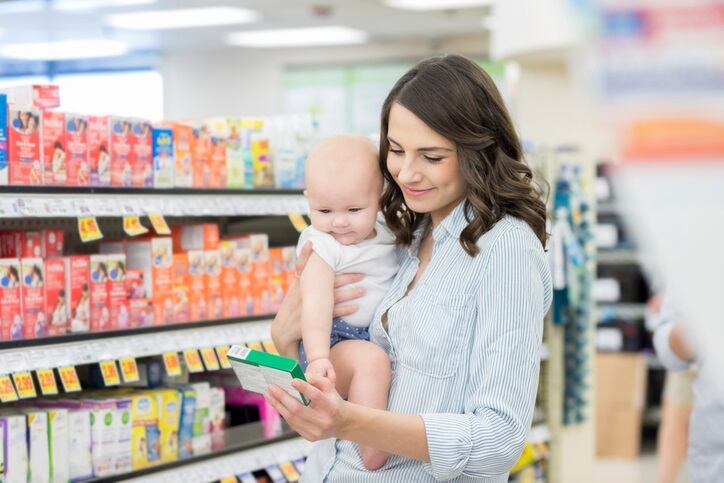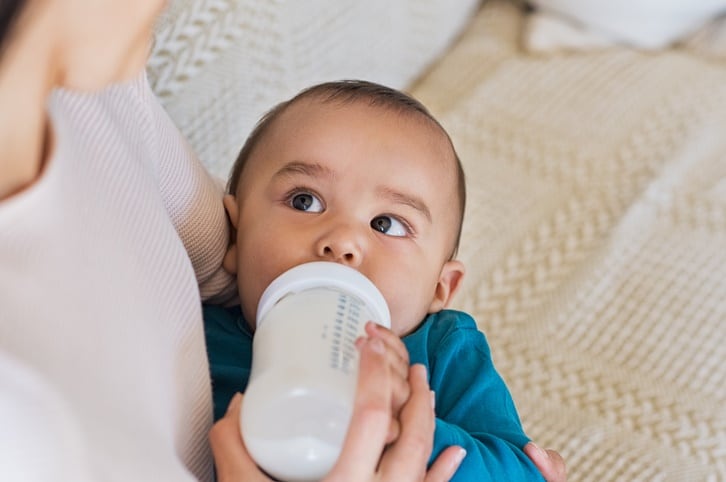CEO Kristy Carr said so when she was addressing queries from analysts during the firm’s FY22 results call.
The ASX-listed firm reported a record gross revenue of A$104.2m, up 123 per cent from the year before, while underlying EBITDA profit was A$4.84m.
In China, revenue has exceeded the pre-pandemic level. Year-on-year revenue growth from China was up 166 per cent, representing 55 per cent of the group revenue.
This was largely driven by the success of its corporate daigou business with AZ Corporation, where gross revenue was up five-fold yoy.
In its international markets, which the US is a part of, revenue was up 202 per cent, representing 28 per cent of the group’s revenue.
Currently, the firm’s infant formula products are available in more than 6,000 stores across 42 US states, including the major supermarket chains Walmart, Target, and Kroger.
More than 800k tins of Bubs infant formulas have been exported to the US since the firm received approval from the US FDA under the enforcement discretion arrangement in late May.
The US introduced enforcement discretion to speed up supplies of infant formulas in the wake of product shortages triggered by Abbott’s product recall.
“The USA infant formula market would have been a much longer term prospect for Bubs, we will now ensure that we continue to stay ahead of the curve, and market dynamics give us confidence that the US would become as significant as China is for Bubs in the short to medium term.
“Overall, this will place Bubs Australia as the only global challenger with a comprehensive claim infant formula portfolio and we aim to be a meaningful industry participant in both China and the USA – two of most important largest market for infant formula in the world, while continuing to grow our home market, Australia,” said Carr.
At the moment, the firm has launched products covering premium segments across a2 milk protein, organic grass-fed, and easy-digest goat milk.
The next move for the firm in the US is to introduce its products in Wholefoods. It has also been in touch with the US FDA on upcoming arrangements to make its exports permanent in the long run.
US FDA announcement expected in Sep
Bubs chairman Dennis Lin said that the firm was expecting the US FDA to introduce specific framework to allow the firm to continue its infant formula export to the US past November.
Previously, the US FDA said it would exercise enforcement discretion until November 14 and that products approved on or prior could remain on the US market after that date.
“From a regulatory perspective, we are expecting the US FDA to issue very specific framework and guidelines but this would only apply to the eight brands that have received enforcement discretion to continue to import infant formula past November.
“We are expecting regulatory framework to be released in late September, but we are still in weekly communication in terms of working through as much as we can on that, and we have something more to discuss closer to the date.
“The key point, however, is that there is no interruption intended by the FDA or the US government, as we transition from temporary to permanent,” Lin said in response to queries from investor analysts.
He also highlighted that Abbott has recalled about 70 million tins of infant formulas and that by being the first to receive enforcement discretion, the Bubs brand has become a brand that cannot be overlooked by the US FDA.
“By being the first mover, Bubs has now become the preferred infant formula for many thousands of American families, and so it is challenging for the FDA, because it no longer makes sense for them to be disrupting the families again from needing to change from one brand to the next,” he said.
Winning consumers in China
Bubs believes that the key to winning Chinese consumers is not just about identifying the right route to market, but more importantly, providing enough margins for retailers to work with the brand and also launching innovative formulations.
“The question is not just about the pricing architecture, or whether we are selling through cross-border e-commerce, or whether we are selling through offline-2-online or daigou.
“The question really comes back to from a consumer-centric point of view, how much is the consumer willing to pay; how does that work in a sustainable value chain and is there enough margin for people to want to be promoting your brand and is your brand authentic and has the most innovative formulations to allow for the Chinese mothers and caregivers to be comfortable enough to be purchasing your brand.
“Those are the some of the key factors,” Lin said.
Recently, the firm also launched an a2 milk protein infant formula containing pre/probiotics and plant-based omega-3 DHA, which Lin said was specially designed for the population in China.
“Plant-based omega-3 DHA is not a point that is usually caught on by Australian mothers and consumers, but it is quite relevant in China and it is very specifically designed to ensure that the Chinese consumers will pick that up as a very advanced formulation,” he said.
In the past year, the firm grew significantly in its CBEC and social selling activities.
“During the year, we experienced 29 per cent growth in CBEC platforms revenue and five-fold growth in what is traditionally referred to as the corporate daigou and is now perhaps best referred to as the recruitment channel,” said Carr.
With AZ Corporation, Bubs has been driving its social selling program and a Tik Tok campaign with its brand ambassador, celebrity Will Liu, has achieved 390 million views in China.
“We plan to continue with reimaging pathways to market, so we can grow without needing to commit the same level of marketing as our peers.
“We’ll find different ways to jump the queue, to get in front of the line, and top of mind for consumers,” Lin added.
Getting the margins right
In FY22, Bubs said its group gross margin hit 32 per cent, while that of Bubs Goat infant formula was higher at 40 per cent, up from 35 per cent last year.
According to the firm, this was achieved due to optimised product and channel mix, improved supply chain, inventory management.
At the same time, Lin noted that product margin has been on the decline across brands in China, and this is a “critical” area that the firm would work on/
“For the Chinese brands together with the foreign brands, the margin is decreasing significantly in the channels. And we really see it as an opportunity for us in FY23 to genuinely break out, not just in taking advantage of a potential vacuum in Australia, because some brands may have actually shifted their direction to another jurisdiction, as well as in China.
“If you look at the infant formula businesses of Chinese companies being Feihe, H&H, Ausnutria, there is a reason why their margin has all significantly decreased, because they have not achieved the ideal supply and demand equilibrium.
“Our challenge is for Bubs to aspire to be very much the first brand that can achieve and communicate that level of visibility, not just for us as a management platform, but also to have the ability to communicate and convey that confidence to the consumers and also to the investors, that for us is absolutely critical,” he said.





